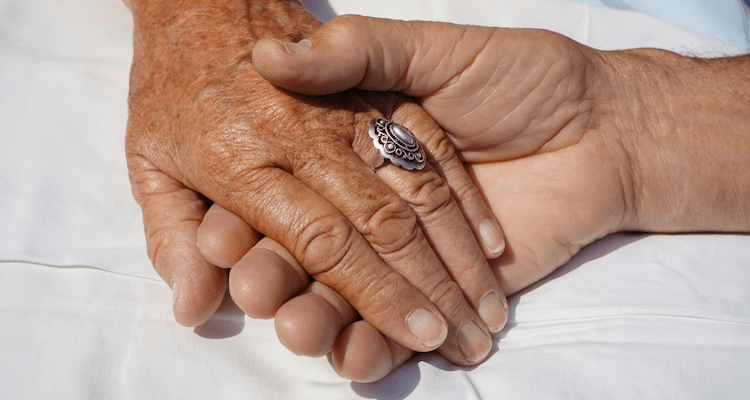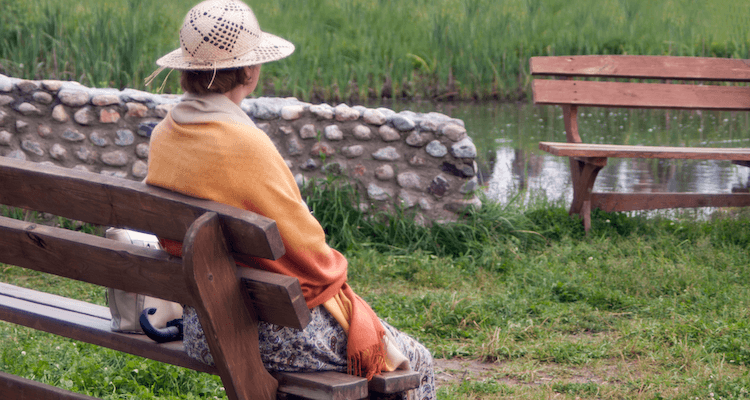May 2, 2023 - Assisted Living
Can Dehydration Cause Hallucinations in the Elderly?
Hallucinations can result from Alzheimer’s disease because of changes that occur within the brain. Memory care in senior living communities can provide support, reduce confusion, and improve the quality of life for older adults with Alzheimer’s and other forms of dementia, but hallucinations can also result from other factors, such as dehydration.
Dehydration is a common condition where the body loses more fluids than it takes in. We can help you learn more about the link between dehydration and hallucinations, as well as how to prevent dehydration and promote hydration in older adults to maintain their overall health and well-being.
What Are Hallucinations?
Hallucinations are perceptions that occur without any external stimuli. In other words, they are sensory experiences of something that doesn’t exist. They can affect any of the senses, including sight, sound, smell, taste, and touch.
Hallucinations can be caused by some health conditions, including:
- Schizophrenia
- Parkinson’s disease
- Alzheimer’s disease. and other forms of dementia
- Migraines
- Brain tumors
- Epilepsy
Hallucinations don’t always result from mental health conditions or a nervous system problem. They can also result from certain medications or physical problems, such as kidney or bladder infections and dehydration.
It’s vital to seek medical attention if someone you know is experiencing persistent or distressing hallucinations.
What Is Dehydration?
Our bodies need water for several functions, such as regulating temperature, lubricating joints, and removing waste. When your body loses more water than it takes in, it can lead to dehydration.
In Alzheimer’s disease and dementia, there is a greater risk for dehydration. With cognitive impairment, older adults may not remember to drink water even when the body is thirsty because the brain doesn’t understand or misses thirst signals.
Other risk factors that can make older adults more susceptible to dehydration include:
- Lower levels of total body fluid
- A lower thirst response
- Decreased kidney function
- Health conditions and medications
The symptoms of dehydration in older adults can include the following:
- Weakness
- Dizziness
- Dry mouth
- Fatigue
- Sunken eyes
- Decreased urination
- Dark-colored urine
- Muscle cramping
Severe dehydration symptoms that require immediate medical attention can include the following:
- Rapid heart rate
- Trouble moving or walking
- Confusion or disorientation
- Fainting
- Diarrhea or vomiting that lasts longer than 24 hours
- Inability to keep fluids down
The Link Between Dehydration & Hallucinations
In some cases, dehydration can also cause hallucinations, particularly in older adults. When you’re dehydrated, there’s an imbalance of electrolytes or essential minerals in the body, which can affect communication between your brain cells and lead to hallucinations.
Treating Dehydration in Older Adults
Treating dehydration in older adults typically involves replenishing fluids and electrolytes in the body. Some of the strategies used to treat dehydration include:
- Increasing water intake or consuming other fluids such as juice or broth for mild to moderate dehydration.
- Drinking beverages that contain electrolytes, such as sports drinks and Pedialyte, for significant loss of electrolytes.
- Administering electrolytes intravenously for severe dehydration.

How Can You Prevent Dehydration in Older Adults?
A common question is: “how much water do you need?” Generally, you should consume one-third of your body weight in fluid ounces each day. So, if you weigh 150 pounds, you should aim to drink 50 ounces of water each day.
Even with that general rule, it’s best to consult your healthcare provider to determine how much water you need to drink, so they can provide advice based on your medical history, medical conditions, and medications you take.
The following suggestions can help older adults maintain proper hydration:
- Try to consume water throughout the day. Other beverages like milk, low-sugar fruit juices, and flavored sparkling water may also aid hydration. Limit your intake of coffee and tea due to their diuretic effects.
- If consuming large amounts of liquid at once is difficult, take small sips instead.
- Incorporate foods with high-water content in your diet, such as watermelon, celery, strawberries, cucumber, and low-sodium broths or soups.
- To enhance the flavor of water, add a slice or squeeze of lemon or lime.
- Plan to drink additional water when exposed to hot or humid conditions for an extended period or during exercise.
- If you have a fever, vomiting, or diarrhea, drink more fluids than usual.
- If you have an underlying medical condition, speak to your healthcare provider about hydration needs.
- Caregivers to older adults can also help avoid dehydration by reminding them to drink fluids regularly and keeping water easily accessible.
Memory Care at Peregrine Senior Living
Memory care at Peregrine Senior Living can provide personalized care for older adults with signs of dementia. To learn more about our community and services, contact us or schedule a tour today.







